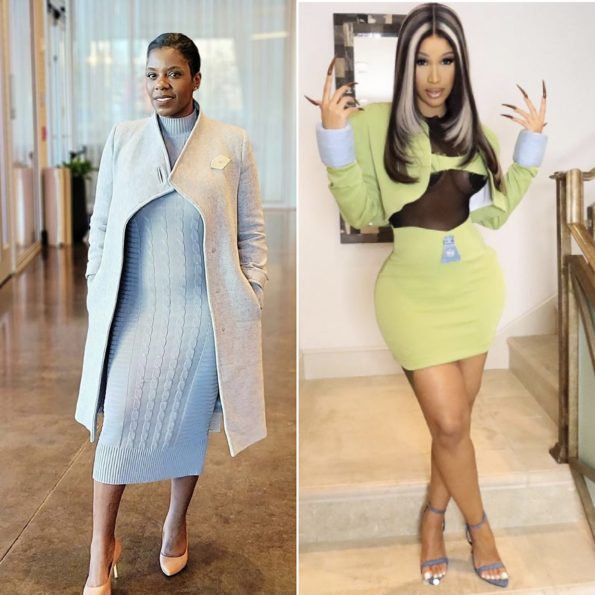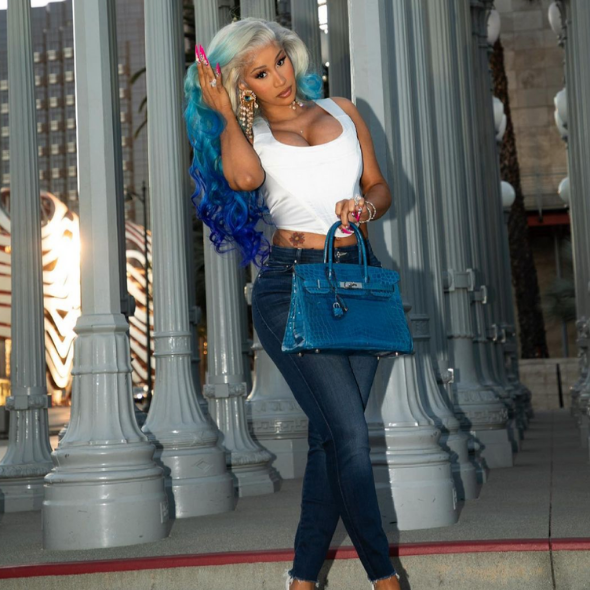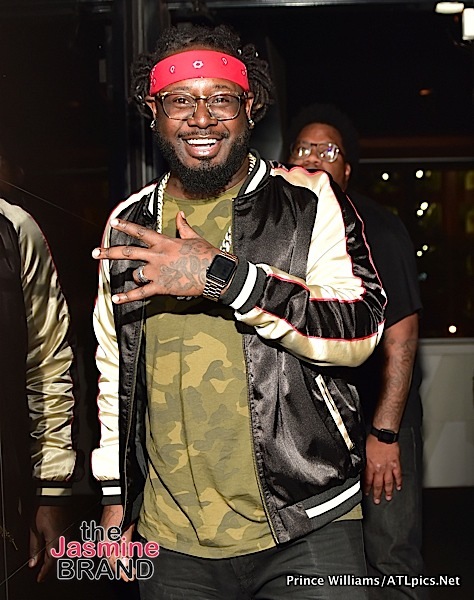Cardi B’s $4 Million Defamation Lawsuit Victory May Impact How Journalists, Gossip Sites & Youtubers Operate Moving Forward
Cardi B’s $4 Million Defamation Lawsuit Victory May Impact How Journalists, Gossip Sites & Youtubers Operate Moving Forward
Did Cardi B’s latest court win against popular Youtuber Tasha K forever change the world of blogging?
As previously reported, last month Cardi B, born Belcalis Almánza, made headlines after winning her libel case against well-known blogger Tasha K born, Latasha Kebe. Cardi B initially sued Tasha K back in 2019 for posting several videos online about her filled with serious allegations, including the blogger’s claims that Cardi contracted STIs and once worked as a prostitute.
The lawsuit resulted in jurors holding Tasha K legally liable for defamation, invasion of privacy through portrayal in a false light, and intentional infliction of emotional distress. The story was first broken by Atlanta veteran journalist Dennis Byron. She was ultimately ordered to pay nearly $4 million to the ‘WAP’ rapper for her actions.

It seems like Tasha K won’t be the only blogger dealing with the repercussions of the lawsuit. According to reports, Cardi’s historic win against Tasha K may have set a new legal precedent around libel and invasion of privacy between celebrities and bloggers. Daniel Powell, a managing attorney at Minc Law, a firm that specializes in online defamation and harassment, recently spoke on Tasha K’s court loss and said,
“This lawsuit really should give [YouTubers] some pause [if they] think that they are completely insulated from any repercussions from what they may say online.”
Part of the funds Tasha K was ordered to pay Cardi includes $1.5 million in punitive damages. Powell continued and seemingly shared that this should be a warning for other gossip YouTubers who have a similar blogging style to Tasha K. He said,
“Punitive damages are not meant to compensate the plaintiff. They’re intended to punish the defendant—to send a message to the community, to be a deterrent for future conduct like this. The jury verdict signals that jurors, [who] represent society, are recognizing the dangers these attacks could cause.”
Following her win against Tasha K, Cardi called out Youtube for “unchecked behavior” on their platform and said,
“The constant lies reported as factual from journalists and bloggers have to end.”

However, due to the 1996 Communications Decency Act – section 230, YouTube can’t force its creators/bloggers to live up to ethical standards that most journalists have to adhere to.
Section 230 of the CDA, states,
“No provider or user of an interactive computer service shall be treated as the publisher or speaker of any information provided by another information content provider.”
Even with that being said, in order to avoid the same $4 million fee that Tasha K was hit with, it’s expected that bloggers will be a lot more careful with the claims they make about celebrities moving forward.

What are your thoughts on this entire situation? Do you think bloggers will be more cautious with what they share online? Tell us below!



 Previous Article
Previous Article Next Article
Next Article Trey Songz Accused Of Starting Physical Fight With Police Officer After He Refused To Follow Health Guidelines In NFL Stadium
Trey Songz Accused Of Starting Physical Fight With Police Officer After He Refused To Follow Health Guidelines In NFL Stadium  Justin Timberlake’s Ex-Manager Johnny Wright Tells Janet Jackson She Needs To Forgive Him
Justin Timberlake’s Ex-Manager Johnny Wright Tells Janet Jackson She Needs To Forgive Him  Drake & Kendrick Lamar Diss Tracks Packaged Together In Cassette Tape Collectible, Now Available For Sale
Drake & Kendrick Lamar Diss Tracks Packaged Together In Cassette Tape Collectible, Now Available For Sale ![Jermaine Dupri Says Mariah Carey Was Inspired by Wu-Tang Clan & Xscape While Making “Always Be My Baby” [VIDEO]](https://thejasminebrand.com/wp-content/uploads/2019/08/jermaine-dupri-mariah-carey-the-jasmine-brand-620x600.jpg) Jermaine Dupri Says Mariah Carey Was Inspired by Wu-Tang Clan & Xscape While Making “Always Be My Baby” [VIDEO]
Jermaine Dupri Says Mariah Carey Was Inspired by Wu-Tang Clan & Xscape While Making “Always Be My Baby” [VIDEO]  Drake Files A Restraining Order Against Alleged Stalker, Who Recently Sent Him An Email “Wishing Him Dead” & Suggesting He Shoot Himself & His Son
Drake Files A Restraining Order Against Alleged Stalker, Who Recently Sent Him An Email “Wishing Him Dead” & Suggesting He Shoot Himself & His Son  Tory Lanez Tells Fans He’ll ‘Be Home Very Soon’ As He Continied
Tory Lanez Tells Fans He’ll ‘Be Home Very Soon’ As He Continied  T-Pain Sparks Debate With Questions About Finances: If I Have Money, I Need To Give It Away To People That Don’t Have Money?
T-Pain Sparks Debate With Questions About Finances: If I Have Money, I Need To Give It Away To People That Don’t Have Money?  DJ Khaled Unveils ‘Father of Asahd’ Album Cover
DJ Khaled Unveils ‘Father of Asahd’ Album Cover